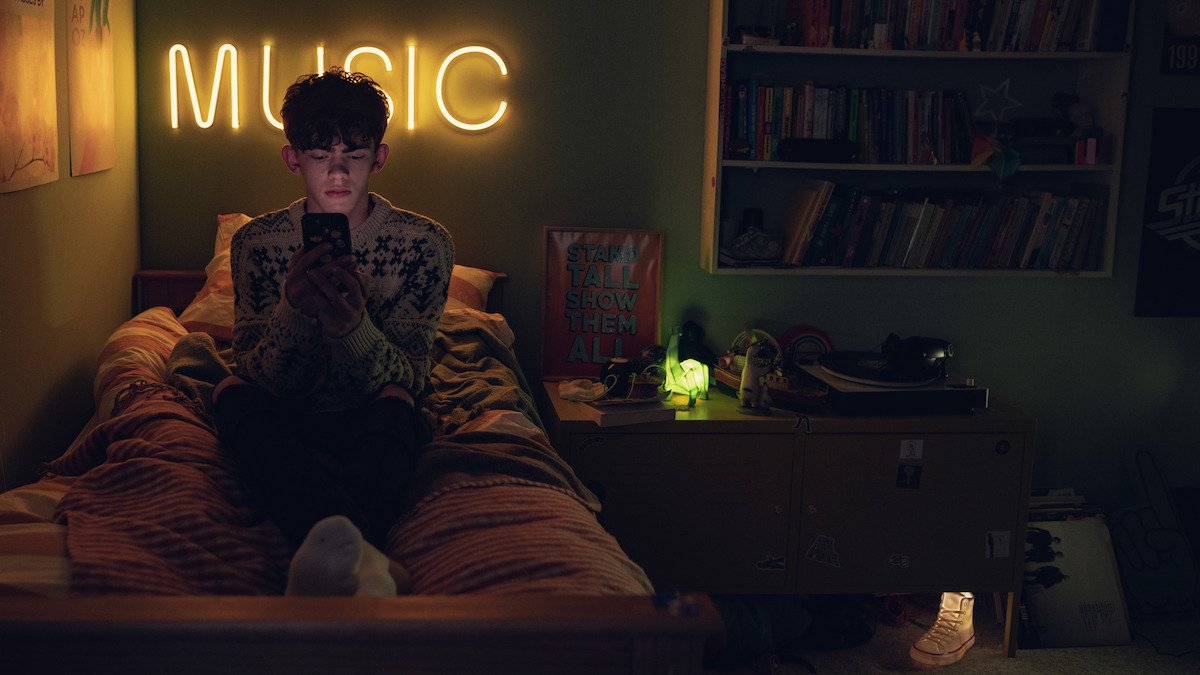Heartstopper Season 2 and Growing Up
First and foremost, let it be said that I didn't mean to watch all of Heartstopper Season 2. I’m a self-identified cynic who has a complex relationship with the rom-com genre and didn’t even finish the first season. Having heard the overwhelmingly positive reviews, though, I decided to check out the season premiere of the internet’s favorite queer teen drama—and much like falling down a flight of stairs, I couldn’t stop and ended the experience in tears.
Heartstopper is a Netflix series that follows a gaggle of queer British teens as they fall in love, learn about themselves, and deal with the joys and pains of growing up. The first season saw leads Charlie (Joe Locke) and Nick (Kit Connor) fall for one another and come to terms with their identities. In Season 2, Charlie and Nick and their friends Elle (Yasmin Finney), Tao (William Gao), Tara (Corinna Brown), Darcy (Kizzy Edgell), and Isaac (Tobie Donovan) navigate teendom in all its sorrow and glory.
Heartstopper Season 2, to oversimplify, is about people pretending to be something they're not—Nick pretends to be straight, Darcy pretends to be carefree, Tao pretends to be the person he thinks Elle deserves, and Charlie pretends that getting a boyfriend has solved all of his emotional problems. The show’s second season is full of people pretending to be okay when they really, really aren’t, and learning to accept love, support, and aid from the people around them. And here’s the thing: I’ve talked with a lot of people about how Heartstopper is the kind of show we wish we’d had as kids because of its queer representation. For me, though, I wish I’d had the show to remind me that community support and allyship are essential tools for coping with mental illness.
To put it plainly, the teens in this show are miles more emotionally literate than I ever was at their age. Sure, I knew what mental illness was at sixteen, but it wasn't something I felt comfortable talking about. In Heartstopper, though, it’s everywhere. Not every character is good at talking about their emotions, of course, but by the end of the series each character has pulled back their mask to some degree—Nick comes out, Darcy tells her girlfriend Tara about her struggles at home, Tao realizes that Elle loves him for who he is, and Charlie opens up to Nick about his mental health struggles. For me, it’s the kind of viewing experience that provokes an odd contradiction of feelings. It’s bittersweet to see those younger than myself succeed and flourish the way I never could.
The point is, I’m glad that this generation is being encouraged by shows like Heartstopper to find the language to speak about their mental health. I don’t think that just talking about mental illness is the end-all-be-all of activism—but it’s a good first step, and it's one that I’m trying to take myself.
I don’t like to talk about my own mental health journey. It’s private, and filled with the kind of memories that still sometimes hurt when I spend too long poking at them. But every time I see someone be vulnerable and honest about their struggles with mental illness, its made me feel a little bit braver and less alone. Every single time. Which is to say—I wish I had a show like Heartstopper when I was young and struggling and unable to articulate what I was feeling.
I am admittedly late to the party, but Heartstopper is a wonderful show that’s worth a watch—even if you, like me, tend to stay away from happy media. I feel better knowing that it's out there. The world is changing all the time, and largely for the worse. I’m uplifted by the thought that at least this one small change may be for the better.
